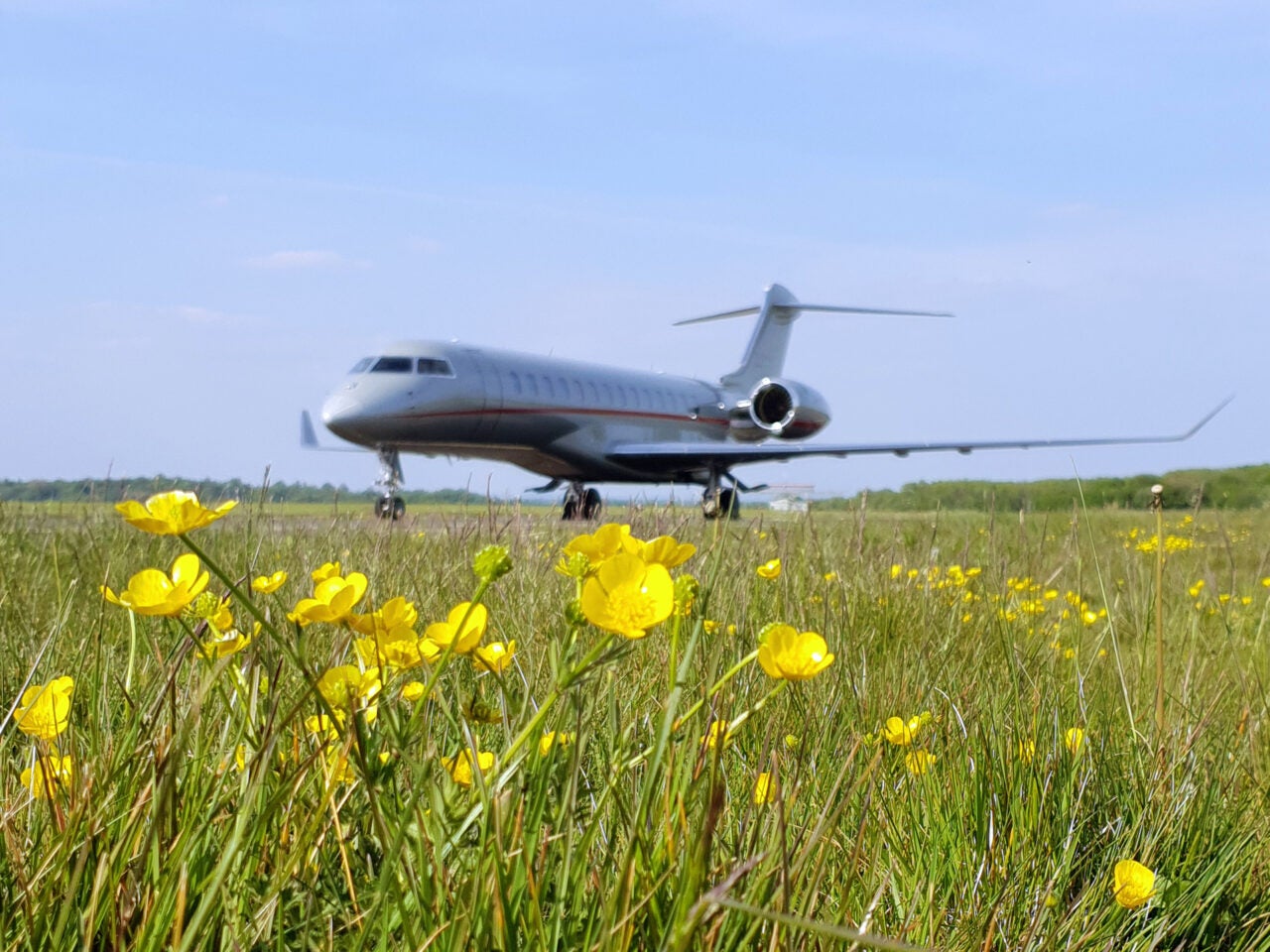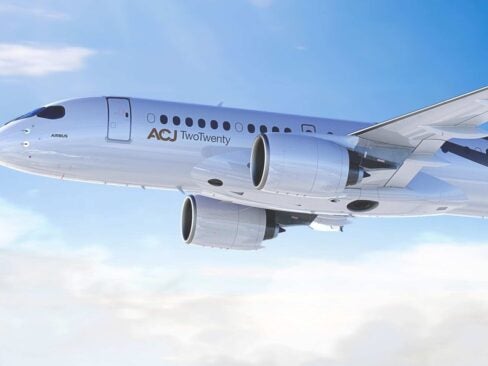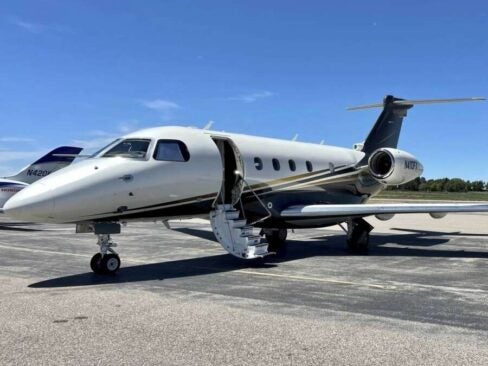Private jet charter companies are going green — and in a big way. It has certainly been a long road, and the industry often receives less recognition than it should.
Yet, according to private aviation services buyer’s guide Private Jet Card Comparisons, the past 18 months saw more than a dozen charter and fractional operators add options to offset emissions and, in some cases, include them as part of the package.
As the industry’s largest company, Berkshire Hathaway-owned NetJets has long had a focus on being green. It opened its first LEED-certified building at its Columbus, Ohio headquarters in 2012. Last year, it invested in WasteFuel, which will convert municipal waste to Sustainable Aviation Fuel (SAF). The 2020 launch of its Global Sustainability Program was designed to give the outside world a 360-degree view of its wide-ranging efforts and use its clout to help move the industry forward.
Beyond initiatives around SAF and offsetting flight emissions, private jet operators are doggedly implementing green business practices big and small. Last year, Clay Lacy installed over 30,000 sq ft of solar panels at its Van Nuys Airport facilities in Los Angeles. The electricity produced is equal to burning 584,000 lbs of coal.
[See also: Sustainable Skies: Jet Companies Making Positive Change]
Luxury charter operator VistaJet replaced over 90% of single-use cabin items with sustainable alternatives such as bamboo toothbrushes and biodegradable packaging. It pledges to be carbon neutral by 2025, a quarter-century ahead of the industry’s target. Directional Aviation’s brands — Flexjet, Sentient Jet, FXAir and PrivateFly — all now include carbon offsets as part of the programs they sell.
Jet card seller Sentient (which, like PrivateFly and Flexjet Europe, offsets 300% of carbon emissions to account for water vapor, aerosols and nitrous oxide) covered 30,000 flight segments in the first 12 months of its program. Still, any discussion of private aviation’s responsible luxury focus must be clear: Billionaires’ private jets and holiday charter trips to Ibiza and Barbados are part of a larger fish tank.
That same business aviation infrastructure creates jobs in regions and communities that are not well-served by scheduled airlines. It’s also the same ecosystem that delivers first responders and lifesaving emergency supplies after natural disasters, brings doctors to rural patients, and supports both medical evacuation and organ transplant flights.
For example, GrandView Aviation, a US helicopter and light jet operator, expanded its bases for organ transplant flights nationwide by also offering jet card memberships on its Embraer Phenom 300 fleet for use when they are not flying lifesaving missions. So, besides offsetting your own flights, take heart that your private jet journeys play a vital role in a more extensive and more critical global transportation and logistics network.
Greg Raiff, CEO, Private Jet Services Group
When Private Jet Services Group announced in 2019 it would include carbon offsets in its pricing, it impacted more than individual private jet flyers. The New Hampshire-based company’s core business is large group charters for teams that have won over a dozen Stanley Cups, 10 World Series and hundreds of NCAA championships. The entertainers it flies have accumulated 139 Grammy Awards and 108 MTV VMAs, including The Rolling Stones and Beyoncé. Founder and CEO Greg Raiff talks about helping make our favorite sports teams and performers green.
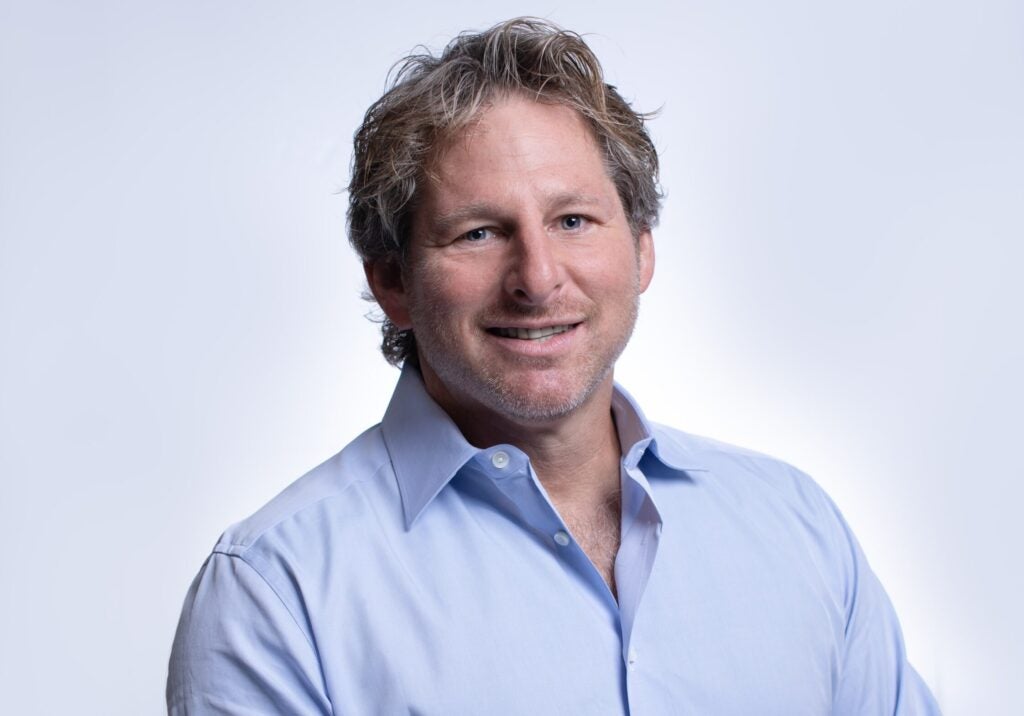
How did your program come about?
We started on a voluntary basis in 2016, and we decided the only way to have a meaningful effort was to invest the cost into the program ourselves rather than asking customers to do it. The hard part about sustainability in private aviation is that the extraordinary people we support are making their own significant contributions. It wasn’t that people were unwilling.
Not one of the RFPs mandates us to run these programs. It was just an inefficient use of everyone’s time to have it as part of the discussion; hence, making it part of our proposals. We have grown fivefold in the last six years, and I believe some of that is attributable to consumers of private aviation voting for companies that have been proactive. It’s a competitive business, so you can’t necessarily just add the cost of offsets and win business. Taking the costs out of profits was the only way for me to go home at night and look at my kids.
Is there a reason your benefactor programs are all US-based?
We do significant business supporting multiple political campaigns, and their flights are supported by American donors. We fly half of the NHL’s US teams. Sports teams tend to be very community-focused. It just seemed to make sense that the reforestation projects were happening on US soil. It makes them much more expensive, because labor here is more expensive than what you often see in projects elsewhere.
Since you include offsets in your quotes, have any customers asked you to take them out to reduce the cost?
Some clients have asked us if we could lower the price and eliminate carbon offsets, and we’ve politely declined, and I think the good news is we still won those contracts.
Ian Moore, CCO, VistaJet
In January 2020, VistaJet launched its Sustainability in Aviation manifesto during the World Economic Forum in Davos. Described as an “action handbook for change in business aviation,” the unit of Vista Global Holding pledged to be carbon neutral by 2025, a quarter-century ahead of the date industry executives typically cite. CCO Ian Moore tells Elite Traveler what went into the initiative and what’s next.
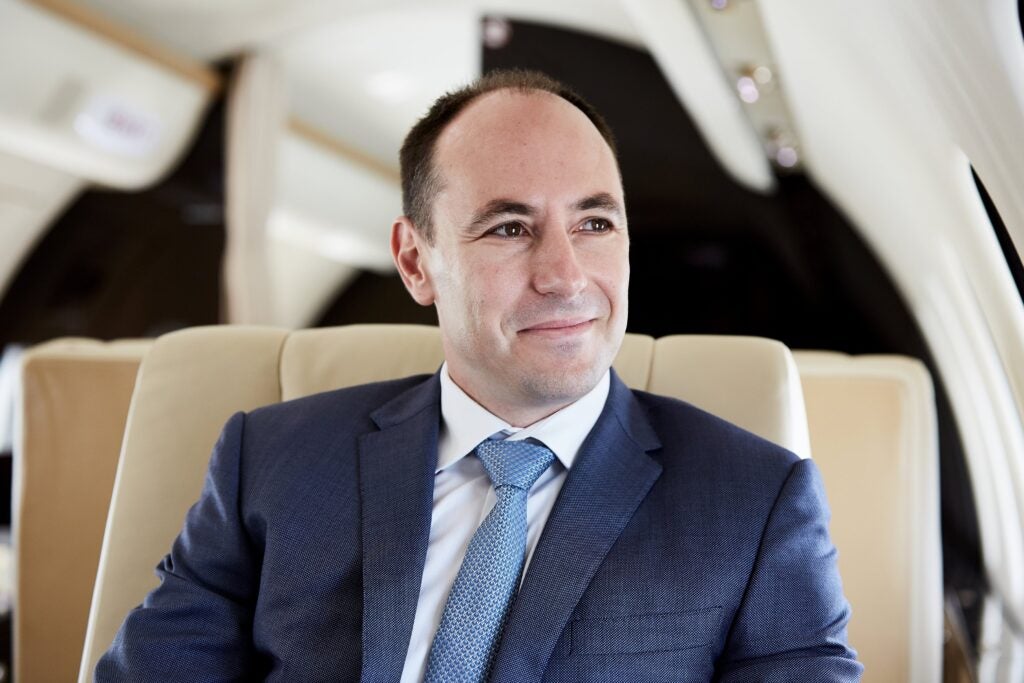
When did you start working on the Sustainability in Aviation manifesto?
We had been working on it two years before. Everything we do, from our aircraft to our service, has to be the best that it can be. We wanted to make sure what we were doing was as bulletproof and comprehensive as possible. We didn’t have the sustainability knowledge inside the company. We had the will but not the know-how, which meant engaging outside partners. Our programs are audited, and that gives an added level of credibility, so we are opening ourselves up.
What was the main motivation for the manifesto?
Customers, particularly HNWs and corporates, as well as our own employees, were putting their ideas forward. Most people may think certain parts of the world are more focused on sustainability than others. That’s not the case. We had a very quick uptake globally. Over 85% of our customers signed up. The majority that didn’t were companies that already have their own programs. Today, if you want to get business from corporations globally, if you want financing, you must have a robust sustainability program.
[See also: First Onboard – Inside VistaJet’s Bombardier Global 7500 Fleet]
Was the decision to go carbon neutral part of the original plan?
It wasn’t, and the reason is you are putting all the pieces together, and you want to see what you can do first. The manifesto was a stretch — we are a stretch company — and we wanted to make sure we could do it. We wanted to go carbon neutral at some point, but we didn’t want to commit until we knew we could do it.
Will you expand the carbon neutral pledge across the entire group?
We are looking to expand across the group. The challenge is that with the group, we have on-fleet and off-fleet solutions, so it takes a little bit longer…. We are working hard for the entire family to be included.
Clive Jackson, Founder and Chairman, Victor
Victor is not one of the largest players in the industry. A broker, it neither owns nor operates any aircraft. That hasn’t stopped its founder and chairman, Clive Jackson, from being one of the industry’s loudest voices regarding sustainability, speaking out to the media with a message that the industry needs to do more. The serial entrepreneur tells us why he has been so vocal and how things have changed.

What was the reaction when you began highlighting the industry’s role in global warming back in 2017?
From the get-go, a large proportion of the industry wasn’t particularly supportive because we had called out the industry, including ourselves. It was not the sort of thing that won a lot of applause. I’m now hugely encouraged by the more forward-thinking leaders and their efforts to create sustainable, meaningful programs — for which I have nothing but applause and admiration. This isn’t a one-man crusade. We can talk to the customers who fly in our planes, who are the opinion makers, and draw it to their attention Previously, companies were afraid customers didn’t want to hear this — you don’t want to rock the boat.
What should the industry be doing next?
It doesn’t stop here. In 2019, when we threw down the gauntlet (by including double carbon offsets in pricing), we asked the visionaries to follow suit. I happily praise Vista, NetJets and Directional for doing that. Where we are in 2022 is a far cry from where we were then. Beyond them, we need to make sure that companies making claims substantiate them. We called for companies to publish how many flights, what was the fuel burn and what they did to offset that, dollars spent on carbon offsets, dollars spent on SAF, dollars spent on the contrails. I think that’s a very important next step forward. It’s an uncomfortable step because you can see how much business a company is doing right away. [The industry] needs to demonstrate to people looking in, who might think we are greenwashing, that we actually walk the talk.





